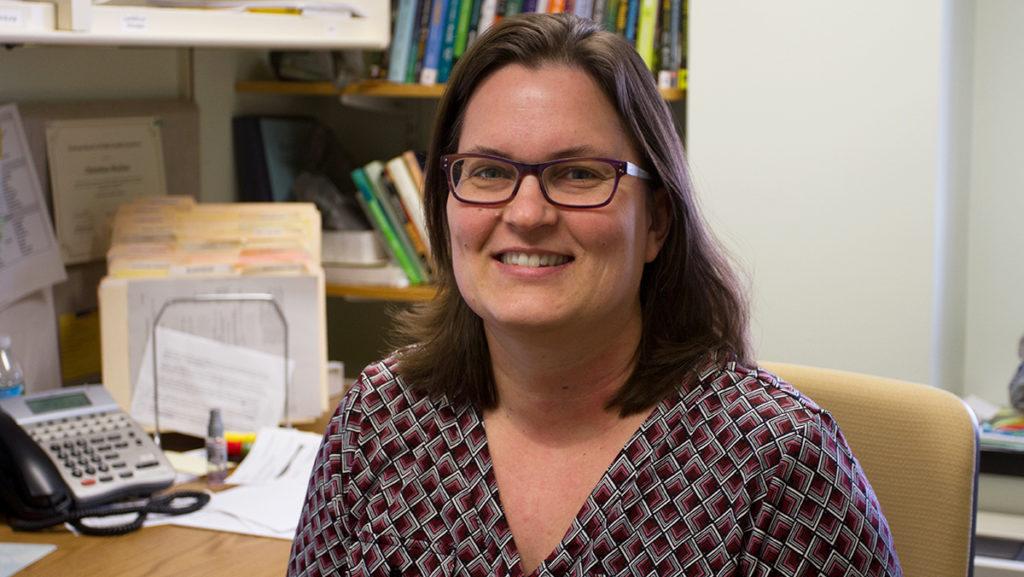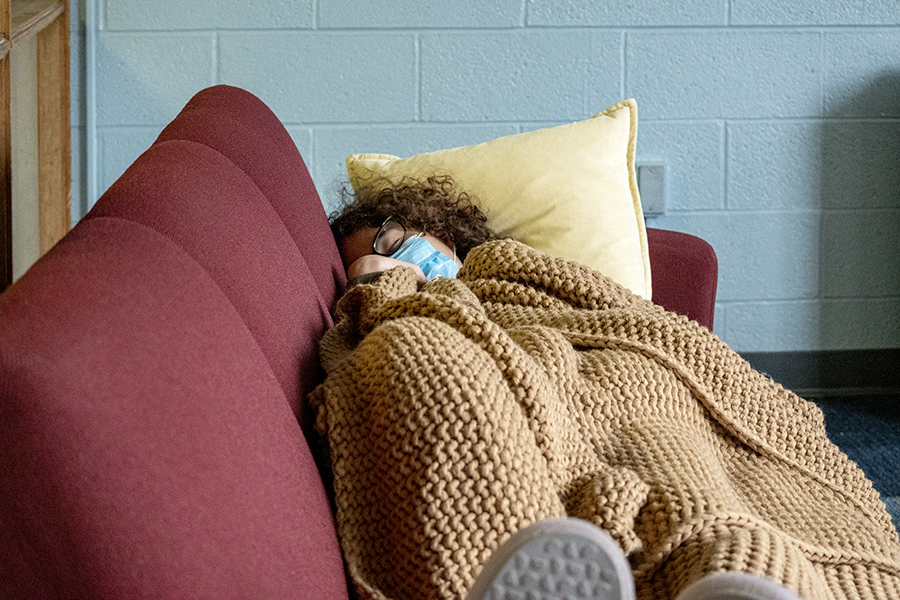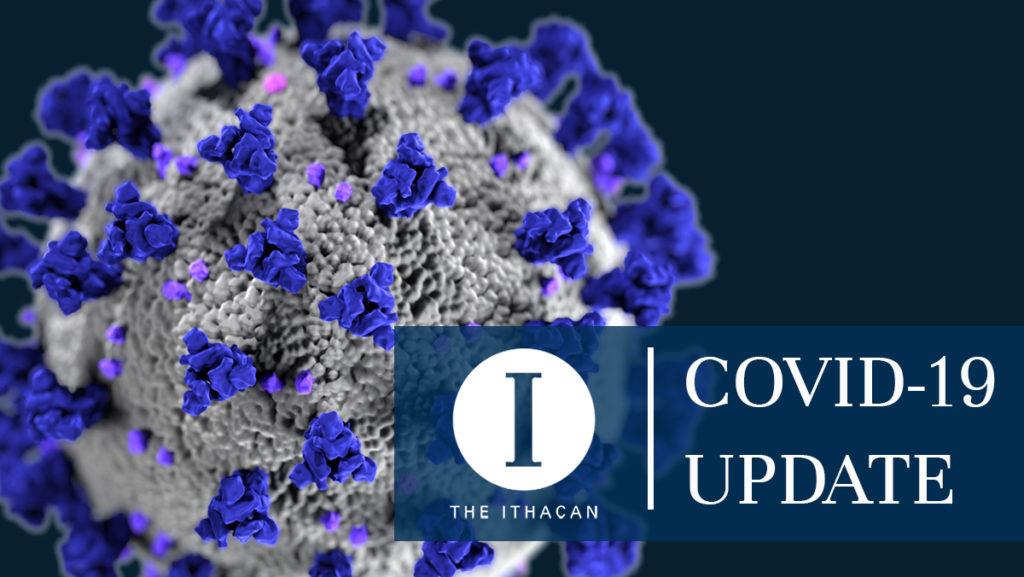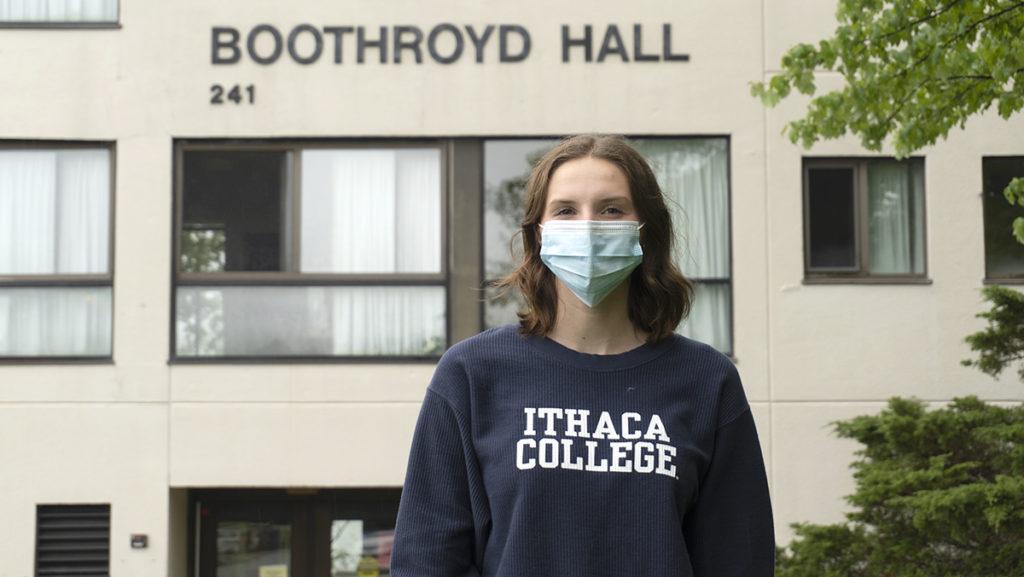Christina Moylan was appointed director of public health emergency preparedness at Ithaca College in August. This is a new position created as a result of the COVID-19 pandemic but is in place to help the college with any future public health needs.
Moylan first began working at the college in 2015 as an assistant professor in the Department of Health Promotion and Physical Education in which she specialized in health policy and management. She then went on to work as associate dean of the School of Health Sciences and Human Performance in 2018.
Prior to her time at the college, Moylan worked at the University of Central Florida, teaching health policy. She also worked with both state and federal organizations to advise health policy for a decade before entering academia.
Moylan said that she and the college anticipate a busy year ahead as COVID-19 affects other campuses around the country. Contributing writer Desiree Holz spoke with Moylan about her new role and the college’s reopening plan.
This interview has been edited for length and clarity.
Desiree Holz: Since you’ve been appointed as director of public health emergency preparedness at the college, what are some of your responsibilities in that position?
Christina Moylan: It’s obviously not something that we’ve had to tackle before. One of my primary responsibilities is to help create the reopening plan that we submitted to New York state. … The process of actually implementing that plan is a campuswide responsibility, so it’s important for folks to know that I am not the one doing everything behind the scenes in that plan. What I am charged with is providing leadership around that plan and supporting the various departments that are responsible for pieces of that plan. In addition to that, I have the Public Health Task Force, which consists of about 17 members right now that represent many of those areas on campus that will have a role in the pandemic response. I’m continuing to work with them to check on the status of how we’re doing, areas that are challenging us and areas where we might need to invest some more resources. I think one other important piece is having communication with the Senior Leadership Team, which is really looking to that public health force team and to me for guidance with how we’re progressing as a campus and also as we move forward with reopening in the spring and that process.
DH: What do you think are some of the most important aspects of public health emergency preparedness for the college?
CM: I think one really important aspect has to do with education. It is about helping people and supporting people to aid them with their decision-making processes about their individual behaviors, and I think that’s very important with the COVID-19 response. Our ability to be successful in this really has to do with our individual behaviors and the choices that we’re making. … The second important pillar for us has to do with quarantine and isolation. People are going to get sick with COVID. It’s very hard to say that that’s never going to happen. Having the infrastructure in place to be able to support students or employees if that happens in those processes is really important as well. We need to make sure that you have food, that you have sanitation service and that you feel supported from the medical perspective. I think the third pillar of this goes back to our experience as employees and students on this campus. We can’t go back to the campus we all knew a year ago. We have to rethink how we interact with each other and what that student experience and that college experience looks like.
DH: In regard to the COVID-19 tracking board, how do you think it will be successful in ensuring safety to students in the college community?
CM: I don’t think the dashboard itself is going to ensure safety, but what is going to ensure safety is individual behaviors and other structures that we have put in place. I think what the dashboard does for the community is one, gives us an assessment of the level of testing that we’re doing … so that people feel comfortable that we are watching and we are tracking. … The second is that it does provide some information to the community on where we are in respect to the incidence of and the prevalence of disease in our community. … Our goal is to keep those numbers as low as possible, but, if something happens and it starts to rise, it also gives us the signal that we need to step back as an institution and as a community and think, ‘What’s happening?’ and figure that out so we can prevent additional cases. It’s a transparency thing for us. We want you to know what’s going on.
DH: How do you expect your role as director of public health emergency preparedness to evolve as this pandemic progresses and students return to campus in the spring presumably?
CM: One of the interesting things about this as a role is that this is a position that nobody has had before, so I don’t really have a road map as I go forward. That’s exciting and challenging at the same time. My sense is that the sophistication of the types of challenges and issues we will face will evolve. There’s a difference between having a few hundred students on campus and having a few thousand students on campus. … I would also hope that I get to spend a significant amount of time working with employees and students on being transparent, responding to questions and helping support decision-making in a way that we can function as a campus community and still is protecting the health and well-being of everyone on campus. … My goal is that as a campus community, we understand that we have undefined issues or challenges that are in front of us.











